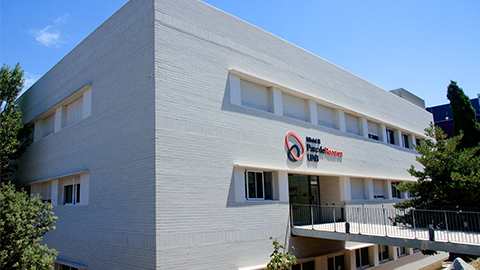Development of new nanotechnological based Enzyme Replacement Therapy for Parkinson’s disease (NANO-ERT)

Researchers from the UAB Institute of Biomedicine and Biotechnology, the ICN2 and the Vall d’Hebron Research Institute (VHIR) received a grant from the BBVA Foundation to develop their NANO-ERT project.
23/06/2020
The BBVA Foundation’s has selected 5 projects out of the 134 presented in the Biomedicine area in its 2019 call (Ayudas a Equipos de Investigación Científica en Biomedicina). The project ‘Development of new nanotechnological based Enzyme Replacement Therapy for Parkinson’s disease: restoration of lysosomal glucocerebrosidase activity through enzyme-polymer nanoconjugation of GBA (NANO-ERT)’ will be funded with €124,872.
The NANO-ERT project is focused on the development of smart nanoformulations to achieve a new therapy against Parkinson's based on Enzimatic Replacement Therapy (ERT). The NANO-ERT project proposes the design and development of a new enzyme replacement therapy based on the administration of recombinant GBA protein, since it is known that the presence of mutations in the lysosomal enzyme GBA is the main genetic risk for developing Parkinson’s disease. The objective is to use nanotechnological approximations to improve ERT applications. The aim is to increase the metabolic stability of GBA and improve its ability to cross the blood-brain barrier and reach the brain. The technology will be validated in animal models and will serve as proof of concept in the development of protein transport systems in the central nervous system in the context of neurodegenerative diseases.
The NANO-ERT project is conducted by a consortium of researchers from the Institute of Biomedicine and Biotechnology of the UAB (IBB), the Vall d'Hebron Research Institute (VHIR) and the CAtalan Institute of Nanoscience and Nanotechnology (ICN2).The project, coordinated by the group Neurodegenerative Diseases (VHIR) and led by Dr Marta Martínez Vicente, has been stablished in collaboration with the Nanostructured Functional Materials group (NANOSFUN, ICN2) led by Dr Daniel Ruiz-Molina, and the group Protein Engineering and Proteomics led by Dr Julia Lorenzo (IBB-UAB).
This information is related to the following SDG
Good health and well-being
Partnerships for the goals